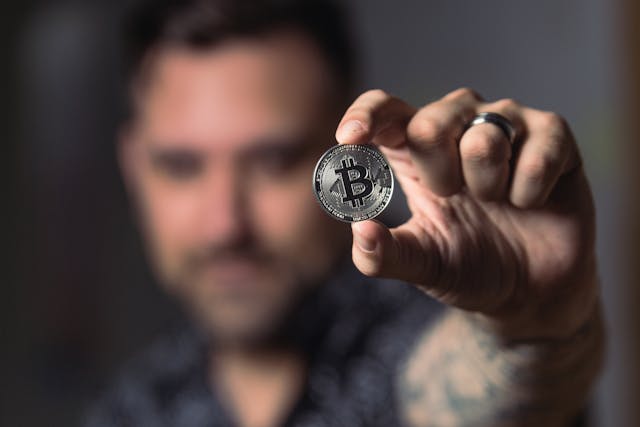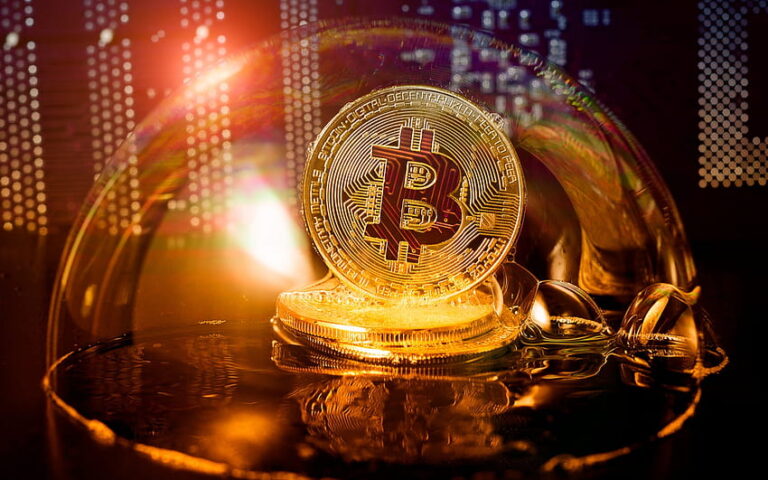
Science has always been about discovery, collaboration, and pushing boundaries. But in today’s world, the process can be frustratingly slow and riddled with inefficiencies. From limited access to research papers hidden behind paywalls to lengthy funding cycles controlled by centralized bodies, the system often feels outdated. Worse yet, transparency issues can erode trust in findings, while the reproducibility crisis remains a major problem. This is where blockchain steps in.
Originally created to power cryptocurrencies, blockchain has evolved into a transformative tool across industries, and science is no exception. In the same way it brought trust and decentralization to the crypto market, blockchain could redefine how research is shared, verified, and funded. It’s also paving the way for new movements like Decentralized Science (DeSci)—a concept that could fundamentally change how knowledge is created and accessed.
The Problems Holding Science BackTransparency Issues in Research
One of the biggest challenges in science is the lack of transparency in how data is handled and shared. Journals require researchers to summarize their findings, but the raw data behind the work is often unavailable. Without full access, it’s hard to verify claims or reproduce experiments. Trust, which should be the foundation of science, can break down.
Imagine a pharmaceutical company conducting drug trials but only publishing selective results. The lack of transparency could hide risks, mislead researchers, and harm public trust. Blockchain can fix this by creating an immutable record of the entire research process, from raw data to final publication.
Access Barriers in the Current System
Access to scientific knowledge often comes at a cost. Many journals charge hefty subscription fees, putting valuable research out of reach for independent researchers, students, and institutions in developing countries.
For example, a groundbreaking study published in a top-tier journal might be inaccessible to someone who can’t afford the $50 pay-per-view fee or a costly annual subscription. This creates an unequal playing field where only a privileged few benefit from cutting-edge discoveries. Blockchain-powered platforms could eliminate these barriers by creating open, decentralized repositories of research that anyone can access.
Funding Inefficiencies
Research funding often flows through centralized bodies like government agencies or private foundations. This process can be slow, bureaucratic, and biased toward well-established institutions or fields of study. Independent researchers or those exploring niche topics often struggle to secure resources.
Blockchain offers a way to decentralize funding through crowdfunding models and DeSci platforms. Researchers can pitch their projects directly to a global audience, using smart contracts to ensure that funds are distributed transparently and fairly.
How Blockchain Addresses These ChallengesImmutable and Transparent Research Records?
With blockchain, every step of the research process can be recorded on an immutable ledger. Data, timestamps, and experiment results are stored securely and transparently, making it impossible to manipulate findings after the fact. This not only builds trust but also makes it easier for others to verify and replicate studies.
For instance, a biologist publishing a study on genome sequencing could store the raw data on the blockchain. Peers can then access and validate the work without any concerns about tampering.
Open Access Through Decentralized Platforms
Imagine a blockchain-based platform where researchers upload their studies, datasets, and peer reviews. These platforms could function like open-access journals, but without the centralized gatekeepers and expensive subscription fees. Blockchain ensures the data is distributed across a decentralized network, making it freely accessible to anyone with an internet connection.
Projects like ArXiv on blockchain are already experimenting with this concept, giving scientists a way to share their work directly with the community.
Decentralized Science (DeSci) and Crowdfunding
DeSci takes the principles of blockchain and applies them to the research world. By tokenizing research projects, scientists can attract funding from a global pool of backers. These backers, in turn, receive tokens that represent their contribution and might even grant them a say in how the research progresses.
For example, a climate scientist could tokenize their research on renewable energy, allowing backers to fund the project in exchange for tokens. These tokens could grant access to updates, early findings, or even future revenue from commercialization. Blockchain-enabled smart contracts would handle the funding process, ensuring that the researcher receives payments only when milestones are met.
Key Blockchain Applications in ScienceData Sharing and Collaboration
One of the most promising aspects of blockchain in science is its ability to enable seamless and secure data sharing. By using blockchain networks, researchers can share large datasets with collaborators across the globe without worrying about data tampering or unauthorized access.
For example, in fields like genetics or climate science, where researchers work with massive datasets, blockchain allows contributors to securely upload, access, and analyze information. Smart contracts can be programmed to grant access to specific parties, ensuring sensitive data remains protected while still enabling collaboration.
Blockchain-powered platforms could even reward researchers who share valuable data. For instance, contributors might earn tokens for uploading datasets or providing analysis, creating a new incentive model for scientific collaboration.
Intellectual Property and Attribution
Protecting intellectual property (IP) is a major challenge in science. Researchers often worry about their ideas being stolen or their contributions going unrecognized. Blockchain solves this by creating immutable, timestamped records of intellectual property ownership.
For example, a chemist working on a new drug formula could record their findings on the blockchain as proof of ownership. If disputes arise later, the blockchain record serves as definitive evidence of who had the idea first. This can also be applied to collaborative projects where multiple contributors need to be credited fairly.
Reproducibility and Trust in Findings
Reproducibility is a cornerstone of scientific progress, but it’s an area where the current system often falls short. Many studies fail replication tests, which undermines trust in their findings. Blockchain can address this by storing all the raw data, experiment methodologies, and analysis on an immutable ledger.
For example, a physics researcher conducting particle experiments could record every detail of their setup and results on the blockchain. Other researchers can then follow the exact same steps to reproduce the findings, fostering trust and accountability in the scientific process.
Real-World Examples of Blockchain in ScienceDecentralized Science Platforms
Blockchain-powered platforms are already emerging as hubs for DeSci (Decentralized Science). Projects like Molecule and LabDAO are creating ecosystems where researchers, funders, and collaborators can connect directly.
These platforms allow researchers to tokenize their work, attract funding, and share results transparently. For example, a biomedical researcher could tokenize their project on a platform like Molecule, allowing global contributors to fund the research in exchange for fractional ownership or access to early findings.
Tokenized Incentives for Research Contributions
Incentive models powered by blockchain are reshaping how scientific contributions are rewarded. Researchers can earn tokens for sharing data, reviewing studies, or publishing findings. These tokens can then be traded, stored as value, or even used for governance on DeSci platforms.
This model encourages collaboration and ensures that contributors—regardless of their geographical location or institutional affiliation—are rewarded for their efforts.
Crowdfunded Research Projects
Crowdfunding via blockchain allows researchers to bypass traditional grant systems and directly appeal to a global audience. Platforms that support this model use smart contracts to ensure that funds are released in a transparent and milestone-driven manner.
For instance, a group of researchers studying renewable energy solutions might crowdfund their work through a blockchain platform. Contributors can track progress through regular updates, and funds are only released when specific goals are met. This approach democratizes research funding and reduces reliance on centralized entities.
The Future of Science on BlockchainCreating a Global Scientific Community
Blockchain has the potential to break down barriers between researchers, institutions, and countries. By fostering a decentralized and open-access approach, it can create a global scientific community where knowledge flows freely, regardless of geography or funding constraints.
Imagine a scenario where a researcher in a developing country collaborates with peers from top-tier institutions, all working together on a shared blockchain network. The decentralized nature of the system ensures that everyone has equal access to data and resources.
Decentralized Autonomous Organizations (DAOs) for Research
DAOs are a natural fit for the scientific world. These blockchain-based organizations allow participants to pool resources, make decisions collectively, and fund projects democratically.
For example, a DAO dedicated to cancer research could pool funds from global contributors and vote on how to allocate resources. Researchers would submit proposals, and token holders would decide which projects to support. This approach ensures that funding decisions are community-driven and aligned with shared goals.
Integrating Blockchain with AI and Big Data
The synergy between blockchain, artificial intelligence (AI), and big data could unlock unprecedented possibilities in science. Blockchain can act as the infrastructure for securely storing and managing massive datasets, while AI analyzes the data to uncover insights.
For example, in genomics research, blockchain could store sensitive genetic data securely, while AI models process the information to identify patterns. The immutable nature of blockchain ensures that data integrity is maintained throughout the process.
Also Read: The Relationship Between Bitcoin and Interest Rates Is Breaking Down
Conclusion
Blockchain is more than just a technology for powering cryptocurrencies—it’s a revolutionary tool that can transform the way science is conducted, shared, and funded. From enhancing transparency and reproducibility to democratizing access and funding, blockchain addresses many of the challenges plaguing the scientific world today.
As DeSci gains momentum, the future of science looks more open, collaborative, and equitable than ever. By embracing blockchain, the scientific community can build a foundation of trust and innovation that benefits researchers and society alike.








